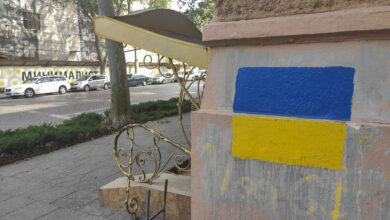Sri Lanka’s president agrees to step down

Colombo, Jul 9 (EFE).- Gotabaya Rajapaksa will step down July 13 as president of Sri Lanka, the speaker of the country’s parliament said Saturday amid massive protests that saw thousands of people storm the official residences of both Rajapaksa and Prime Minister Ranil Wickremesinghe.
“To ensure a peaceful transition, the president said he will step down on July 13,” Mahinda Yapa Abeywardena said in televised remarks.
“I therefore request the public to respect the law and maintain peace,” the parliament speaker said.
The announcement came hours after Wickremesinghe tendered his resignation and said he would form a national unity government, accepting the recommendation of opposition leaders who said that both he and Rajapaksa had to step down for mishandling the crippling economic crisis afflicting the island nation.
It is hoped that formation of an all-party government will prevent the country from descending into chaos as it tries to secure a loan from the International Monetary Fund (IMF), as well as deal with fuel and food shortages.
Distribution of fuel should begin this week and the director of the World Food Program due to visit the country in the coming days, while the debt sustainability report for the IMF will be finalized soon, the prime minister’s office said.
Hundreds of protesters occupied the official presidential and prime ministerial residences and the Presidential Secretariat building.
Images on television and social media showed protesters enjoying the amenities at the presidential mansion, including the swimming pool and well-equipped gym.
And Wickremesinghe’s office said that protesters set fire to the prime minister’s private residence in Colombo.
The Daily Mirror newspaper published photos of the premier’s home in flames.
Rajapaksa had already left the presidential mansion at the request of security forces, who were unable to contain the protesters despite firing tear gas, Sri Lankan daily Ada Derana reported.
A spokesman for the Colombo National Hospital told reporters that at least 12 people have been injured.
Thousands of people from across the country gathered in Colombo on Saturday to demand Rajapaksa’s resignation.
On Friday night, authorities imposed a curfew in several parts of the Western Province, which includes the capital, after a protest march by university students.
But the restrictions were lifted in the morning following criticism.
The Sri Lanka Bar Association said that the curfew was “clearly intended to stifle the freedom of expression and dissent,” while the chair of the Human Rights Commission of Sri Lanka, Justice Rohini Marasinghe, said that he was “alarmed” by orders for the army to prepare troops to maintain law and order in the streets.
Sri Lanka is facing one of the worst economic crises since its independence in 1948 due to a fall in foreign currency reserves and massive debt.
Tensions escalated on the island at the end of March, when the authorities imposed 13-hour long power cuts, which triggered protests calling for the government to step down.
Since then, hundreds of protesters have occupied the vicinity of the Presidential Secretariat in Colombo and peaceful protests across the island nation have become commonplace as authorities try to secure a bailout package from the IMF. EFE aw-daa/pd/ks/dr





